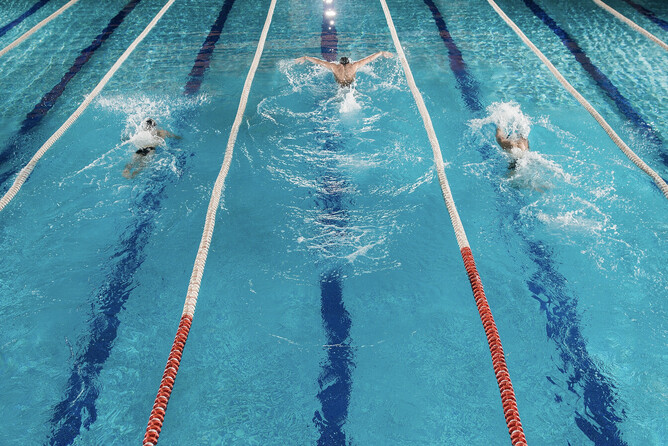“Exercise keeps me occupied, which is good for my mental health” (Gail Porter).
How do you feel when you have finished exercising? You might be out of breath or your muscles might ache, but alongside that you might feel a sense of achievement and feel really good about yourself.
That’s because when we exercise our bodies are releasing chemicals and hormones which make us feel good. When we exercise, we produce serotonin which can help lift us out of a low mood and states of depression, and anxiety. We also produce endorphins which help to relax our muscles and create positive feelings in the body.
Exercise has multiple benefits. It can improve self-esteem, self-worth, and improving body image. By focusing on our body’s performance during exercise, and by finding time for ourselves, we can open up a mental space for processing any problems we might have. Team sports and exercise classes can help build personal relationships and friendships, develop confidence, and the ability to work well as part of a team. Exercise can release tensions and built up angry feelings by putting them into a safe, controlled activity. Finally, exercise can help regulate our sleep.
What exercise should I do?
You do not have to run marathons or subscribe to expensive gym memberships to get active. The good news is that exercise comes in many different forms so there will be something to suit everyone. It is also something you can do for free!
Which of these exercises do you do already, and which ones would you like to try?
Yoga
This is a great way to connect your mind and body. It helps build strength and flexibility and some yoga practice is combined with a spiritual practice which can also make you feel calm and rejuvenated. If you are not able to get to a face-to-face class, then there are plenty of free yoga classes that you can view online.
Walking or jogging
A 15-minute walk or gentle jog, each day, around your local area will be enough to feel some amazing therapeutic benefits. Physical exercise taken outdoors can help us connect to nature and to the environment. The Couch to 5K routine is a really good way to transform your walks into jogs and eventually into 5K runs!
(https://www.nhs.uk/live-well/exercise/couch-to-5k-week-by-week/)
Swimming
This is a wonderful exercise for building up muscle strength and endurance, but the water resistance makes it supportive on your joints. It can be relaxing and meditative.
Rowing
This is a great exercise for toning all your muscles and for a cardiovascular workout. If you row as part of a team, then this has the benefit of building friendships and working together with others to achieve a common goal.
Dancing
This is a fun and expressive physical activity. You might like dancing in a night club, dancing with a school or in classes, or even just dancing for fun round your living room. Exercise videos. Starting to exercise requires some confidence to get ‘out there’, but there are many ways in which you can exercise in the comfort of your own home. Explore YouTube or DVDs which have timed exercise routines. Starting even with just a ten-minute workout video a few times a week can help you feel amazing!
Team Sports
Football, rugby, cricket, basketball, this is to name just a few of the team sports that you could get involved with. Team sports are competitive which can give you the achievement of winning and resilience in dealing with losing a game. It helps you to build close bonds and strong relationships with your teammates.
How much exercise should I do?
Like everything, exercise should be engaged with in moderation. The NHS’ recommended amount of exercise for adults is ‘at least 150 minutes of moderate intensity activity a week or 75 minutes of vigorous intensity activity a week’ (https://www.nhs.uk/live-well/exercise/). But if this feels too daunting, start with small bursts of physical activity which feel comfortable for you, and work your way up to reach the recommended levels.
When exercise can be a problem
Excessive exercise can be a problem for some people. Like a lot of things that make you feel great, exercise can become addictive as you try to seek the next natural high that you get from exercising. It can also be an issue when it accompanies a body image disorder or an eating disorder. If you find yourself obsessively thinking about exercising, exercising even if it is causing you physical harm, or exercising in secret, then please reach out for support.
Getting started
If you feel down, it can feel really difficult to even think about doing any exercise. Engaging with exercise takes some will power and determination. Start by setting your goals small, a walk round the block or a 5-minute exercise video a day is great way to start and will help build your confidence. And remember, everything is connected – a healthy body means a healthy mind.

